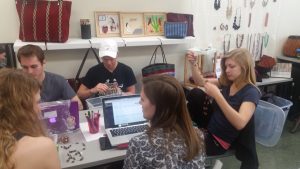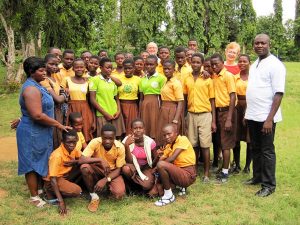Wisconsin Without Borders Recognizes the Valuable Work of its Membership.
Wisconsin Without Borders is an alliance that unites community-based scholars across the UW-Madison campus. In effort to highlight the great work of our membership, WWB posts selected profiles that outline ongoing projects.
 Jen Wagman – Wisconsin Without Borders Marketplace
Jen Wagman – Wisconsin Without Borders Marketplace
Wisconsin Without Borders Marketplace is an interdisciplinary international development student organization and collaborative project. The project has 15 different artisan sites in communities in Kenya, Mexico, India, Nepal and Ecuador. Wisconsin Without Borders Marketplace involves undergraduate students from the School of Journalism and Mass Communication, College of Letters and Sciences, School of Business, School of Education and is always looking for more new members. Through cross-campus, culture and country collaborations, Wisconsin Without Borders Marketplace provides the ultimate applied student learning experience. The undergraduate students work with faculty, staff and students of the Global Artisans Initiative to develop new products, cultivate craft appreciation and respect and understand art and design. The undergraduate cohort employs the 4W initiative, guiding empowerment efforts for Well-being for Women in Wisconsin and the World so that we can run the day-to-day operations of an ethical fashion social enterprise. For more information on the organization, WWBM can be found on Facebook, Twitter and Instagram or online at wwbmarketplace.org.
 Christopher Olsen – Global Health Institute
Christopher Olsen – Global Health Institute
Christopher Olsen, Professor Emeritus from the School of Veterinary Medicine and Associate Director Emeritus of the Global Health Institute, has been an advocate for community engaged scholarship throughout his time at UW-Madison, including while serving as Associate Dean for Academic Affairs at the School of Veterinary Medicine and Vice Provost for the university. He continues this work through a project in Ghana with collaborators Mary Crave from UW-Extension and Sophia Friedson-Ridenour from the Department of Gender and Women’s Studies. This team has developed a curriculum for junior high school students around One Health (the interdependence of health in humans, animals and the environment), hygiene, and girls’ empowerment. Community partner 4-H Ghana is implementing the curriculum in 20 schools in Ghana. In addition, beyond the curriculum content, the UW team has also led workshops for 4-H staff and club leader-teachers in student-centered, active learning pedagogy. The hope is that this project can ultimately be expanded to other countries in Africa.